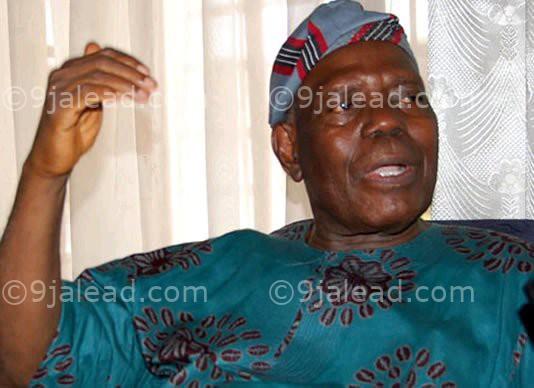In a startling revelation published by The Punch, former Osun State Governor, Chief Bisi Akande, has shared previously unknown details about the events leading up to Chief Bola Ige’s death, suggesting state involvement in the tragic incident....CLICK HERE TO CONTINUE READING.>>
In a comprehensive account of the period before Ige’s assassination, Akande revealed intimate details of a crucial conversation regarding Ige’s intention to resign from President Olusegun Obasanjo’s government. “One evening, he just called me and said, ‘I’m going to resign from this government,'” Akande recounted, adding, “I said, ‘Please sir, I will come back to you.'”
Thank you for reading this post, don't forget to subscribe!According to Akande’s narrative, he sought counsel from Ige’s friend, Oluwole Rotimi. “He asked me to advise him (Bola Ige) not to resign because if he does, he’s likely going to die,” Akande quoted Rotimi’s warning.
The former governor described how he attempted to dissuade Ige from resigning, despite Ige having received contrary advice from prominent figures. “He said he had talked to Wole Soyinka and Bola Tinubu and both of them had asked him to resign,” Akande quoted Ige as saying.
In a revealing portion of his account, Akande detailed his suggestion to Ige about approaching then-President Obasanjo: “You can go to Obasanjo, tell him what you are angry about and tell him that if he doesn’t want you again, this is your letter.”
The meeting with Obasanjo, as recounted by Akande through Ige’s own words, led to an agreement between the two parties. “Obasanjo asked what he wanted him to do and they both agreed,” Akande stated, adding that Obasanjo requested, “Don’t give that letter to the press, give it to me.”
Most controversially, Akande made a shocking allegation about Ige’s subsequent assassination. “He was killed in anticipation of what he might become in the future,” Akande declared, before making the grave assertion: “It was a state murder. The government killed him. The government can kill anybody.”
This explosive revelation comes years after Ige’s assassination, which occurred following his transfer to the Ministry of Justice. The allegations have reignited public interest in the unresolved murder case and raised questions about potential state involvement in political assassinations during that era.
These statements by Chief Akande have added a new dimension to the ongoing discourse about political violence and accountability in Nigeria’s democratic journey, potentially reopening wounds from one of the nation’s most controversial political assassinations.











